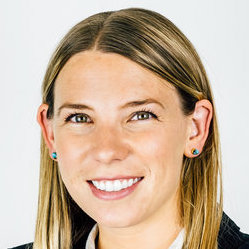Does Funding for State Universities in Oregon Have a Gender Bias?
Posted on Nov 18, 2020 | Comments 0
 A new study led by Jacqueline Strenio, an assistant professor of economics at Southern Oregon University in Ashland, finds that public funding of state universities in Oregon favors academic programs and universities with higher percentages of men.
A new study led by Jacqueline Strenio, an assistant professor of economics at Southern Oregon University in Ashland, finds that public funding of state universities in Oregon favors academic programs and universities with higher percentages of men.
The state’s Student Success and Completion Model (SSCM) determines the distribution of state funds to the seven public universities through three categories: mission differentiation, activities-based funding (assessed through student credit hours), and outcomes-based funding (measured as degree completions). While this cost-weighting system is meant to adjust for the differences in costs associated with different programs that are more costly to operate such as many programs in research-intensive STEM fields, the allocation system also may explicitly and/or implicitly privilege men. The lowest cost-weighted disciplines are female-dominated (primarily the social sciences and humanities). Universities graduating students from more female-dominated disciplines thus receive less funding on average.
The authors conclude that by failing to account for gender norms and barriers that have historically resulted in a lack of gender diversity but also a lack of racial and ethnic diversity in STEM, the STEM bonuses in Oregon’s SSCM result in gender-biased funding. They recommend that “transparency in the calculations and reasoning behind weights as well as evidence for the results of current weights would be beneficial, for instance, by providing evidence that the cost-weights accurately reflect cost differences across programs and that specific academic disciplines defined as high-demand and high-reward benefit the State of Oregon.”
Dr. Strenio is a summa cum laude graduate of the University of Colorado at Boulder. She holds a master’s degree and a Ph.D. in economics from the University of Utah.
The full study, “A Gender Analysis of Oregon’s Student Success and Completion Model,” may be accessed here.
Filed Under: Research/Study








